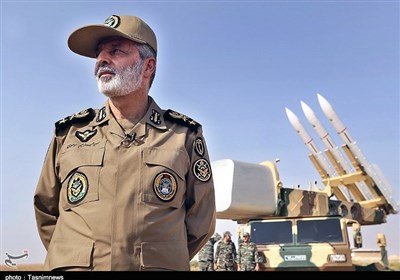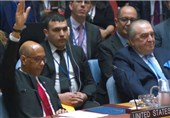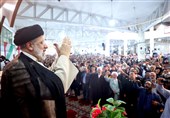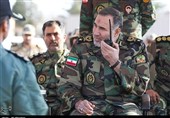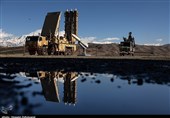US Claim of Aid A Pretext to Sponsor Regime Change in Venezuela: Analyst
TEHRAN (Tasnim) – An American political analyst described US efforts to send the “so-called humanitarian aid” to Venezuela as a pretext to conduct regime change in the Latin American country, calling on Washington to help Yemenis and Palestinians instead.
“The US claim of wanting to provide humanitarian aid to Venezuela is simply a pretext for efforts to engage in the domestic subversion of the country in order to sponsor regime change. Claims of wanting to provide humanitarian assistance cannot be taken seriously. At present, there are many humanitarian crises around the world that the US has either largely ignored, or has provided assistance to states that are responsible for carrying out humanitarian catastrophes such as the Saudi-led coalition’s war in Yemen or Israel’s war against the Palestinians,” Keith Preston, the chief editor and director of attackthesystem.com, told Tasnim.
Keith Preston was born in Lynchburg, Virginia, United States. He received degrees in Religious Studies, History, and Sociology from Virginia Commonwealth University. He is the founder and director of American Revolutionary Vanguard and the chief editor of AttacktheSystem.Com. He has also been a contributor to LewRockwell.Com, Antiwar.Com, Anti-State.Com,Taki’s Magazine, Radix Journal, and AlternativeRight.Com . He is the author of six books, and was awarded the 2008 Chris R. Tame Memorial Prize by the United Kingdom’s Libertarian Alliance. Keith has been a featured speaker at conferences of the National Policy Institute, H. L. Mencken Club, and Anarchapulco. He has been interviewed on numerous radio programs and internet broadcasts, and appeared as a guest analyst on Russia Today, Press TV and the BBC.
The following is the full text of the interview.
Tasnim: US Secretary of State Mike Pompeo said that the United States "will take action" in support of anti-government protesters amid clashes between them and Venezuelan police. How do you see the latest developments in Venezuela?
Preston: Venezuela has suffered from a severe economic downturn in recent years. The crisis stems from a variety of causes, including failed domestic economic policies that have been pursued by the Venezuelan government, a drop in oil prices combined with Venezuela’s heavy dependence on oil exports, and economic sabotage that has been waged against Venezuela by the United States. The economic downturn has created civil unrest in Venezuela, and political conflict within the country has led to a constitutional crisis between the government of President (Nicolas) Maduro, and the opposition represented by Juan Guaido. (US) Secretary of State Pompeo’s comments reflect that fact that the Trump administration is attempting to take advantage of the crisis in Venezuela as a pretext for sponsoring a regime change operation in the country. The United States has a lengthy and extraordinary history of engaging in subversion, economic sabotage, or outright invasion of Latin American countries that goes as far back as the early 19th century. The objective of such actions has always been to exercise political hegemony over the Western hemisphere, maintaining access to valuable economic resources in Latin America, and preventing European or Asian powers from gaining influence in the region. The United States’ objective of seeking domination over Latin America was first formulated by US President James Monroe in 1823, and this objective has been the guiding principle of US foreign policy in the region for the subsequent two centuries. The present objective of the US in Latin America is to overthrow the government of President Maduro, and install a government that will essentially be a puppet regime controlled by Washington, which will then allow the United States to dominate Venezuela’s oil trade. The US National Security Advisor, John Bolton, has admitted to this.
Additionally, the United States has an animus toward Venezuela because of the fact that for the past two decades Venezuela has sought to pursue a political and economic path that involved moving away from the influence of Washington, and toward a stronger relationship with the BRIICS nations. Venezuela was representative of the so-called “pink tide” that developed in the late 1990s and early to middle 2000s where left-wing populist governments increasingly came to power in various Latin American countries such as Brazil, Argentina, Bolivia, Ecuador, Nicaragua, and others. It was for this reason that the United States sponsored a coup in Honduras in 2009, as then-Secretary of State Hillary Clinton later admitted. Consequently, Washington has feared losing its traditional domination over Latin America. Venezuela, in particular, is seen as a leading anti-American force in the region.
Tasnim: Russia has warned that the United States is using humanitarian aid to instigate a “dangerous provocation” in Venezuela by arming the country's opposition while moving its own forces closer to Venezuelan borders in preparation for a military invasion. What do you think?
Preston: The US claim of wanting to provide humanitarian aid to Venezuela is simply a pretext for efforts to engage in the domestic subversion of the country in order to sponsor regime change. Claims of wanting to provide humanitarian assistance cannot be taken seriously. At present, there are many humanitarian crises around the world that the US has either largely ignored, or has provided assistance to states that are responsible for carrying out humanitarian catastrophes such as the Saudi-led coalition’s war in Yemen or Israel’s war against the Palestinians. So-called “humanitarian aid” is a tool of foreign policy that is provided on a selective basis, and is often merely a weapon that is used to undermine governments that are unfavorable to Washington. Russia is opposed to American intervention in Venezuela because Russia wishes to develop an economic relationship of its own with Venezuela. In the period prior to the present US actions against Venezuela, Russia offered to help rebuild Venezuela’s economy in order to cultivate Venezuela as a trading partner. The United States is opposed to Russia gaining economic or political influence in Latin America, and American hostility to Venezuela has subsequently escalated.
Tasnim: China said that the "so-called aid" should not be forced into Venezuela, lest it cause violence. What’s your take on this? Will US finally intervene militarily in the country?
Preston: China is also working to cultivate its own trade relationships with various Latin America nations, and does not want for greater destabilization in the region to occur for that reason. Nor does China wish for the US to undermine its own trade interests in Latin America. US President Trump has said that sending American military forces to Venezuela may be an option, and John Bolton has indicated an interest in sending 5000 American troops to Venezuela’s border in Colombia. Whether there will be a direct invasion of Venezuela is unknown at this time. The US generally prefers to wage war against Latin American nations by means of the use of proxy forces, mercenaries, foreign governments, technology, and economic sabotage with direct military intervention being only a peripheral action, in part because such interventions are a political liability in the domestic United States. However, a full-scale civil war in Venezuela could result in a direct US military intervention.


